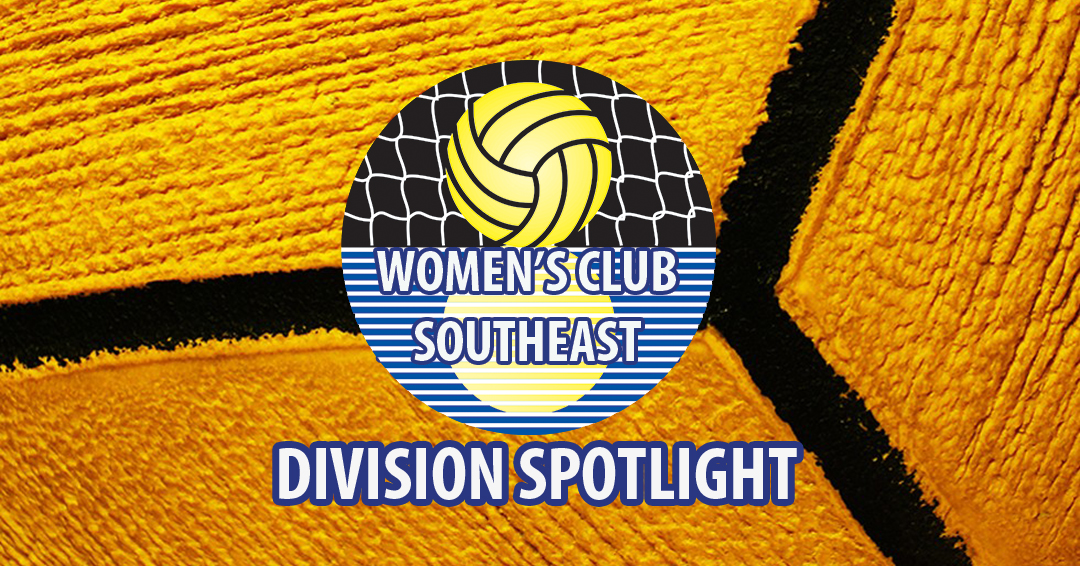BRIDGEPORT, Pa. — The Collegiate Water Polo Association (CWPA) Women’s Collegiate Club Division Spotlight series heads to the Southeast Division which was comprised of Emory University, Florida Atlantic University, Florida State University, the Georgia Institute of Technology, the University of Central Florida, the University of Florida and the University of Florida “B” during the Coronavirus shortened 2020 season.
HISTORY: Founded in 2001 for women’s collegiate club programs in Florida and Georgia, the Women’s Southeast Division has been dominated for the Gators of Florida over the 20-years of the group’s tenure.
Florida, which has appeared in all but two (2015, 2017) of the division’s 19 contested title games – as the 2020 season was terminated in March due to the Coronavirus – holds a 14-3 mark when playing for the Southeast Division crown. The 2001, 2002, 2003, 2004, 2005, 2006, 2007, 2008, 2011, 2012, 2014, 2016, 2018 and 2019 Southeast Division Champion, the Gators notched runner-up finishes in 2009, 2010, 2013. In addition, Florida is the only division school with a National Championship as the team downed the University of California-Davis at the University of Notre Dame to capture the 2019 Women’s National Collegiate Club title.
Only one other program has won the Southeast Division Championship as Central Florida took home the 2009, 2010, 2013, 2015 and 2017 titles with runner-up placements in 2006, 2007, 2011, 2012, 2014, 2016 and 2018.
Emory (2001, 2002, 2003, 2017) and Florida State (2004, 2005, 2008, 2009, 2010, 2015, 2019) have also finished second in the division.
On the national level, the Southeast Division has appeared in four Women’s National Collegiate Club Championship title games since the inaugural event in 2000. Florida holds a 1-2 mark when in collegiate club’s biggest game as the Gators dropped the 2001 and 2006 title tilts to Michigan State University prior to striking down the Aggies of UC-Davis in 2019. Central Florida has appeared in one National Championship game as the team fell to Uc-Davis in 2013.
Southeast Division Champion/Runner-Up
- 2001 – University of Florida / Emory University
- 2002 – University of Florida / Emory University
- 2003 – University of Florida / Emory University
- 2004 – University of Florida / Florida State University
- 2005 – University of Florida / Florida State University
- 2006 – University of Florida / University of Central Florida
- 2007 – University of Florida / University of Central Florida
- 2008 – University of Florida / Florida State University
- 2009 – University of Central Florida / University of Florida
- 2010 – University of Central Florida / University of Florida
- 2011 – University of Florida / University of Central Florida
- 2012 – University of Florida / University of Central Florida
- 2013 – University of Central Florida / University of Florida
- 2014 – University of Florida / University of Central Florida
- 2015 – University of Central Florida / Florida State University
- 2016 – University of Florida / University of Central Florida
- 2017 – University of Central Florida / Emory University
- 2018 – University of Florida / University of Central Florida
- 2019 – University of Florida / Florida State University
National Collegiate Club Champion/Runner-Up
- 2001 – Michigan State University / University of Florida
- 2006 – Michigan State University / University of Florida
- 2013 – University of California-Davis / University of Central Florida
- 2019 – University of Florida / University of California-Davis
THE TEAMS: Located entirely within the states of Florida and Georgia, the Southeast Division is one of only four divisions (Southeast, Pacific Coast, Big Ten, Sierra Pacific) to appear in the women’s National Collegiate Club Championship game four times since the inaugural event in 2000.
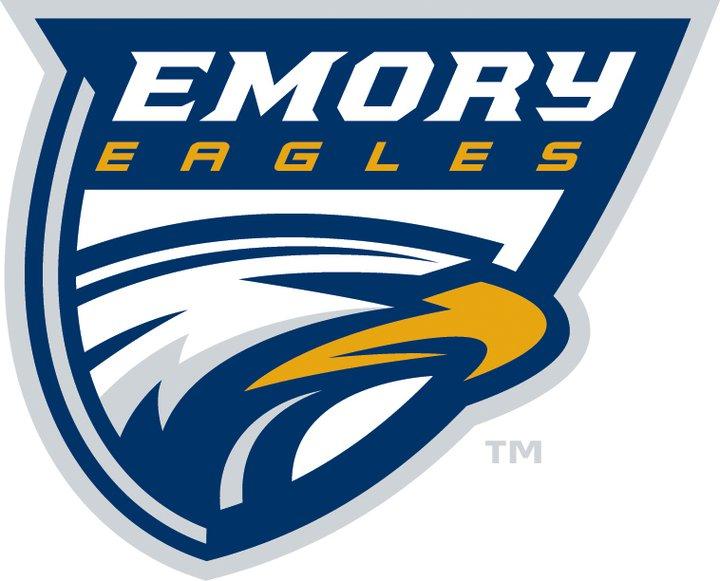 Emory University
Emory University
A four-time Southeast Division runner-up (2001, 2002, 2003, 2017) and the host of the 2002 Women’s National Collegiate Club Championship, the Eagles of Emory University are the longest tenured women’s collegiate club team in the State of Georgia.
A private research university located in Atlanta, Georgia, – and the only private institution in the Southeast Division – Emory was founded in 1836 as “Emory College” and was named in honor of Methodist bishop John Emory. Emory is the second-oldest private institution of higher education in Georgia and among the 50 oldest private universities in the United States.
The school has nine academic divisions: Emory College of Arts and Sciences, Oxford College, Goizueta Business School, Laney Graduate School, School of Law, School of Medicine, Nell Hodgson Woodruff School of Nursing, Rollins School of Public Health and the Candler School of Theology. Emory is in partnership with one of its fellow Southeast Division teams as the Georgia Institute of Technology and Peking University in Beijing, China jointly administer the Wallace H. Coulter Department of Biomedical Engineering. The university operates the Confucius Institute in Atlanta in partnership with Nanjing University. Further, the school has a growing faculty research partnership with the Korea Advanced Institute of Science and Technology (KAIST).
A diverse campus with students from all 50 states, the District of Columbia, five territories of the United States, and over 100 foreign countries, Emory is renowned for its science and medical programs.
Emory Healthcare is the largest healthcare system in the state of Georgia and comprises seven major hospitals, including the Emory University Hospital and Emory University Hospital Midtown. The university operates the Winship Cancer Institute, Yerkes National Primate Research Center, and many disease and vaccine research centers. Emory is the leading coordinator of the U.S. Health Department’s National Ebola Training and Education Center. The university is one of four institutions involved in the National Institute of Allergy and Infectious Disease’s (NIAID) Tuberculosis Research Units Program. The International Association of National Public Health Institutes is headquartered at the university and the Centers for Disease Control and Prevention and the American Cancer Society are national affiliate institutions located adjacent to the campus.
The school has a connection to fellow Atlanta institution Coca-Cola as Emory relocated to its current location in Druid Hills in 2915 after accepting a land grant from Asa Griggs Candler, founder of The Coca-Cola Company.
The Emory College of Arts and Sciences offers Bachelor of Arts (B.A.) and the Bachelor of Science (B.S) undergraduate academic degrees. Academic Departments include African American Studies, African Studies, American Studies, Ancient Mediterranean Studies, Anthropology, Art History, Biology, Chemistry, Classics, Comparative Literature, Computer Science, East Asian Studies, Economics, English, Environmental Sciences, Film & Media Studies, French and Italian Studies, German Studies, Global Health, Culture, and Society, History, Human Health, Interdisciplinary Studies, Jewish Studies, Latin American and Caribbean Studies, Linguistics, Mathematics, Middle Eastern and South Asian Studies, Music, Neuroscience and Behavioral Biology, Philosophy, Physics, Political Science, Psychology, Quantitative Theory and Methods, Religion, Russian and East Asian Languages and Cultures, Sociology, Spanish and Portuguese, Theater and Dance, and Women’s, Gender and Sexuality Studies. The Confucius Institute, a non-profit public institution affiliated with the Ministry of Education of the People’s Republic of China, operates in co-operation with the university at the Emory College of Arts and Sciences. The Emory-Tibet Partnership was established in 1998.
Emory University offers highly selective honors programs for high-performing undergraduates in most areas of concentration. More than 25% of undergraduates participate in an honors program each year.
Emory University offers a five-year dual degree program in engineering, in collaboration with the Georgia Institute of Technology. Emory University also offers a dual master’s degree in social work with the University of Georgia.
Oxford College offers an Associate degree (A.A.) in liberal arts. Students who successfully complete Oxford College advance to Emory College of Arts and Sciences to complete their undergraduate education. Academic departments include Anthropology, Art, Biology, Chemistry, Economics, English, Geology, History, Languages, Mathematics & Computer Science, Music, Political Science, Philosophy, Psychology, Physics & Astronomy, Quantitative Theory and Methods, Religion, Sociology, Theater, and Women’s Studies.
The Emory University School of Medicine offers the Doctor of Medicine (MD), Doctor of Physical Therapy and Master of Medical Science degrees. Academic departments include Biochemistry, Biomedical Engineering, Biomedical Informatics, Cell Biology, Human Genetics, Microbiology/Immunology, Pharmacology, and Physiology. Clinical Science Departments include Anesthesiology, Dermatology, Emergency Medicine, Family & Preventive Medicine, Gynecology/Obstetrics, Hematology/Medical Oncology, Neurology, Neurosurgery, Ophthalmology, Orthopaedics, Otolaryngology, Pathology, Pediatrics, Psychiatry & Behavioral Sciences, Radiation Oncology, Radiology, Rehabilitation Medicine, Surgery and Urology.
The Nell Hodgson Woodruff School of Nursing offers the Bachelor of Science in Nursing (BSN), Masters of Science in Nursing and Doctor of Nursing Practice (DNP).
The Candler School of Theology offers the Master of Divinity (MDiv), Master of Religious Leadership (MRL), Master of Religion and Public Life (MRPL), Master of Theological Studies (MTS), Master of Theology (ThM), Doctor of Theology in Pastoral Counseling (ThD) and an online Doctor of Ministry (DMin) degree.
The Emory University School of Law offers the Juris Doctor, Juris Master, Master of Laws and Doctor of Juridical Science.
The Laney Graduate School offers the Doctor of Philosophy and Master of Arts degrees.
The Goizueta Business School offers the Bachelor of Business Administration, Master of Business Administration, Executive Master of Business Administration, and a Doctor of Philosophy in Business Administration.
The Rollins School of Public Health offers the Master of Public Health (MPH) and Master of Science in Public Health (MSPH) and Doctor of Philosophy (PhD) degrees. Academic Departments include Behavioral Sciences & Health Education, Biostatistics & Bioinformatics, Environmental Health, Epidemiology, Global Health and Health Policy & Management.
Admission to the school is difficult as Emory received 28,517 applications in 2020 and offered admission to 4,142 students, a 14.5% percent admission rate. However, Emory has more than 149,000 alumni, with 75 alumni clubs established worldwide in 20 countries.
For more information on the Emory women’s collegiate club team, contact Anna Fischer (anna.fischer@emory.edu) or the team’s general e-mail account (emorywomenswaterpolo@gmail.com).
- Facebook (@EmoryWomensWaterPolo)
- Instagram (@Emorywomenswapo)
- Website (www.emorywomenswaterpolo.com/)
Florida Atlantic University 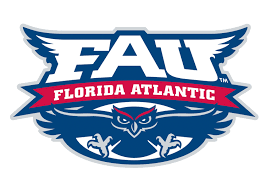
A team on the rise, the Owls of Florida Atlantic University elected to compete as an exhibition team during the 2020 season.
A public university with its main campus in Boca Raton, Fla., and satellite campuses in Dania Beach, Davie, Fort Lauderdale, Jupiter, and Fort Pierce, FAU belongs to the 12-campus State University System of Florida and serves South Florida. The university offers more than 170 undergraduate and graduate degree programs within its 10 colleges.
Florida Atlantic opened in 1964 as the first public university in southeast Florida, offering only upper-division and graduate level courses. Initial enrollment was only 867 students. Today, enrollment has grown to over 30,000 students representing 140 countries, 50 states and the District of Columbia.
The university has ten colleges which altogether offer over 180 different bachelor’s, master’s and doctoral degree programs: the Charles E. Schmidt College of Science, Charles E. Schmidt College of Medicine, Christine E. Lynn College of Nursing, College for Design and Social Inquiry, College of Business, College of Education, College of Engineering and Computer Science, Dorothy F. Schmidt College of Arts and Letters, Harriet L. Wilkes Honors College and the Graduate College.[28]
The university offers two honors options: the Harriet L. Wilkes Honors College and a University Scholars Program. The Wilkes Honors College is located on the John D. MacArthur campus in Jupiter, Florida. It offers a liberal arts education in the platform of a public university, yet is comparable to a private liberal arts college. The Boca Raton campus houses the University Scholars Program, which offers special honors seminars, forums, courses, and advanced course substitution for freshmen.
The average class size at FAU for undergraduates is 33 students, and for graduate classes, 12 students. The top three undergraduate majors by enrollment are elementary education, accounting and management, respectively. The top three graduate majors by enrollment are business administration, educational leadership and accounting, respectively. The average age for first-year students is 18; however, the average age for all undergraduates is 24 and the average age for graduate students is 33. The average four-year graduation rate for first-time, non-transfer students is 14%, while the 6-year graduation rate is 39%.
FAU has long ranked as the most racially, ethnically and culturally diverse institution in Florida’s State University System as students come from all 50 states, every county in Florida, and more than 180 countries. Enrichment opportunities include internships, hands-on research, study abroad experiences, and 310 clubs and campus organizations.
For more information on the Florida Atlantic women’s collegiate club team, contact the league office at office@collegiatewaterpolo.org.
- Facebook (@OwlsWaterPoloClub)
- Instagram (@FAUwomenswaterpolo)
- Twitter (@FAUPolo)
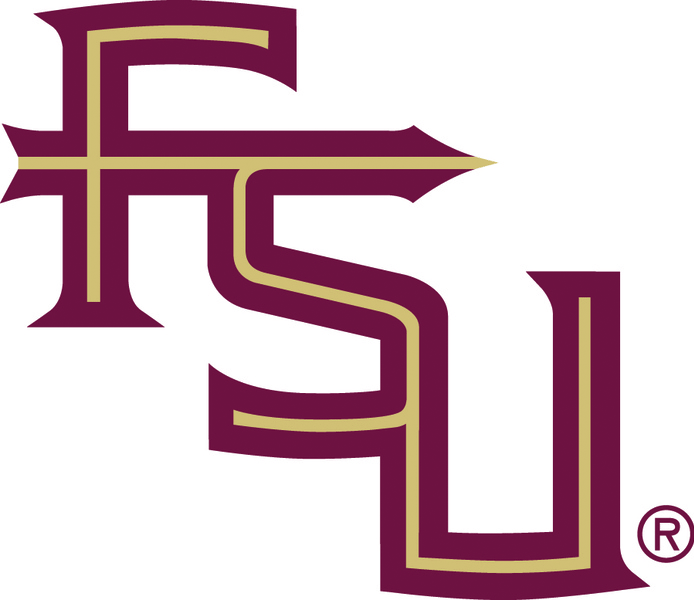 Florida State University
Florida State University
A seven-time Southeast Division runner-up (2004, 2005, 2008, 2009, 2010, 2015, 2019), the Seminoles of Florida State University have rated as a consistent threat to capture the division championship each year.
A public university in the Florida state capital of Tallahassee, Fla., FSU was founded in 1851 and is located on the oldest continuous site of higher education in the state of Florida. The school served as the host of the 2012 Women’s National Collegiate Club Championship – one of two times a Southeast Division team has hosted the event (2002 – Emory University).
The university comprises 16 separate colleges and more than 110 centers, facilities, labs and institutes that offer more than 360 programs of study, including the Colleges of Applied Studies, Arts & Sciences, Business, Communication & Information, Criminology & Criminal Justice, Education, Engineering, Fine Arts, Human Sciences, Law, Medicine, Motion Picture Arts, Music, Nursing, Social Sciences & Public Policy, and Social Work, plus the Graduate School, Dedman School of Hospitality, and the Jim Moran School of Entrepreneurship. Florida State offers 104 baccalaureate degree programs, 112 master’s degree programs, an advanced master’s degree program, 12 specialist degree programs, 70 doctorate degree programs, and 3 professional degree programs. The most popular Colleges by enrollment are Arts and Sciences, Business, Social Sciences, Education and Human Science.
The Florida State University College of Medicine operates using diversified hospital and community-based clinical education medical training for medical students. Founded on the mission to provide care to medically under served populations, the Florida State University College of Medicine for patient-centered care. The students spend their first two years taking basic science courses on the FSU campus in Tallahassee and are then assigned to one of the regional medical school campuses for their third- and fourth-year clinical training. Rotations can be done at one of the six regional campuses in Daytona Beach, Fort Pierce, Orlando, Pensacola, Sarasota or stay in Tallahassee if they so choose.
Florida State students, numbering 41,551 in Fall 2019, come from more than 130 countries, and all 50 U.S. states. The ratio of women to men is 57:43, and 22.6 percent are graduate and professional students. Professional degree programs include Law, Medicine, Business Administration, Social Work, and Nursing.
In 2017, 7.1% of FSU students were international students. Of those, the most popular countries of origin were: China (20%), Panama (10.5%), India (6%), South Korea (5.4%), Colombia (5.1%) and Brazil (3.7%) with a total of 2,974 international students enrolled at Florida State.
Miami-Dade, Broward, Palm Beach, Hillsborough, and Leon County make up the largest Florida counties for in-state students. The Miami metropolitan area accounts for the largest geographic origin of students and makes up 23.41% of the student body. Students from Georgia, Virginia, New York, New Jersey, North Carolina, Texas, Pennsylvania, and Maryland make up the largest states for out-of-state students
For more information on the Florida State women’s collegiate club team, contact Morgan Gibson (gibsonmorgan12@gmail.com).
- Facebook (@WomensWaterPoloatFSU)
- Instagram (@fsuwomenswaterpolo)
- Twitter (@fsuwaterpolo)
- Website (campusrec.fsu.edu/sports/clubs/w-water-polo/)
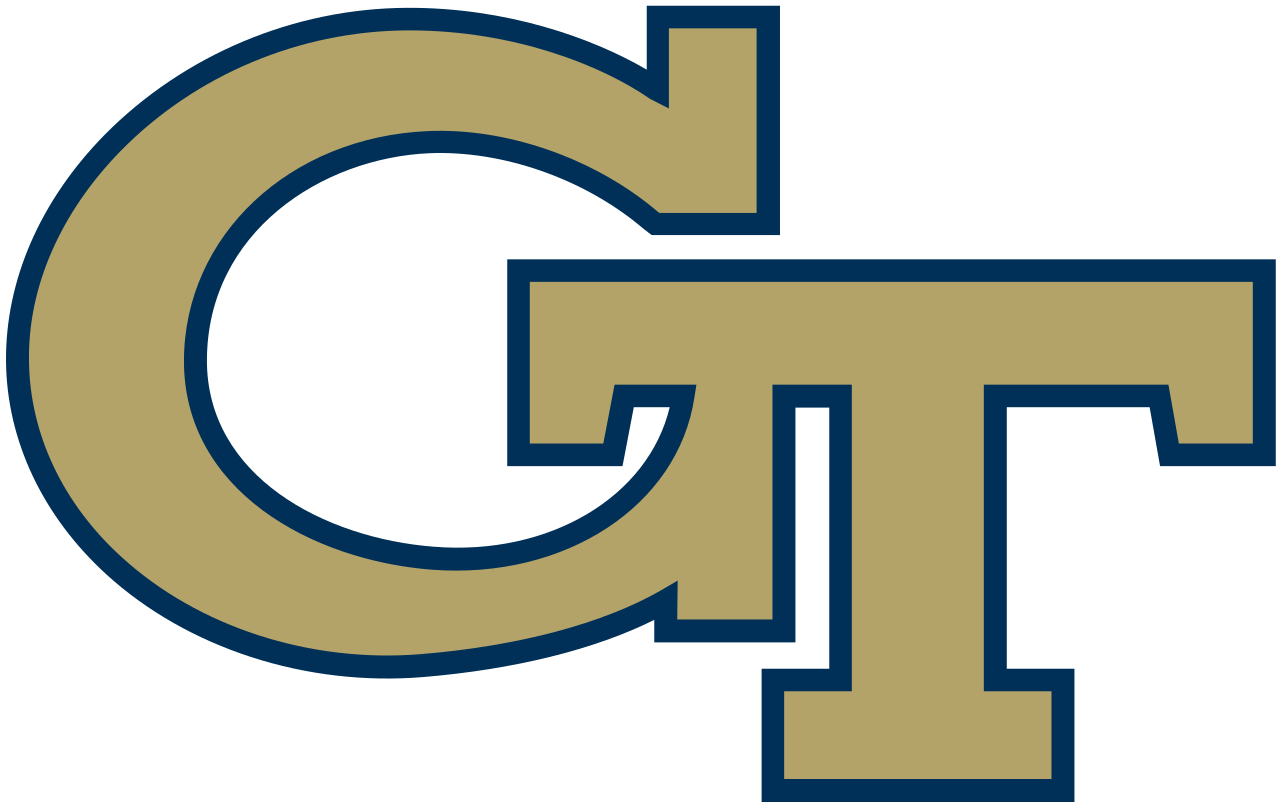 Georgia Institute of Technology
Georgia Institute of Technology
The Yellow Jackets of the Georgia Institute of Technology – also known as Georgia Tech or simply “Tech” – are one of two women’s collegiate club teams outside the state of Florida.
The team was founded six years ago and is comprised of women primarily in the school’s STEM (science, technology, engineering and mathematics) program. Georgia Tech is unique as the program practices in the 1996 Olympic pool constructed when Atlanta hosted the Olympic Games.
“I would say that our team is unique because we are always having fun. We are the team that loses every game at tournaments, sometimes by over 10 goals, but we always get out of the pool smiling no matter the score,” notes Sarah Demsky.
“I think our program is unique because we focus on building relationships between players, we are more than just teammates, we genuinely are friends,” adds Vasiliki Frantzis.
Per Emily Kliewer, “Our team focuses on making the sport accessible and enjoyable to all. Regardless of prior experience, we welcome everyone and hope everyone leaves the pool having learned something new.”
Due to the school’s proximity to fellow Atlanta based institution Emory University, Georgia Tech has developed a close bond with the Eagles and regularly scrimmages the club.
In terms of a goal, Georgia Tech aims that everyone leaves the program enjoying the sport more then when they started. The team is an excellent way to make lasting friendships without the pressures and commitments of higher-level teams.
Located in Atlanta, Georgia, Georgia Tech is a public research university and institute of technology which is part of the University System of Georgia and has satellite campuses in Savannah, Georgia; Metz, France; Athlone, Ireland; Shenzhen, China; and Singapore.
The school was founded in 1885 as the Georgia School of Technology as part of Reconstruction plans to build an industrial economy in the post-Civil War Southern United States. Initially, it offered only a degree in mechanical engineering. By 1901, its curriculum had expanded to include electrical, civil, and chemical engineering. In 1948, the school changed its name to reflect its evolution from a trade school to a larger and more capable technical institute and research university. Today, Georgia Tech is organized into six colleges and contains about 31 departments/units, with emphasis on science and technology. It is well recognized for its degree programs in computer science and engineering.
The school is unique as unlike most similarly named universities (such as the Massachusetts Institute of Technology and the California Institute of Technology), the Georgia Institute of Technology is a public institution.
The student body consists of more than 29,000 graduate and undergraduate students, and there are around 1,740 full-time academic faculty. The student body at Georgia Tech is 69% male and 31% female.
Around 50–55% of all Georgia Tech students are residents of the state of Georgia, around 20% come from outside the U.S., and 25–30% are residents of other U.S. states or territories. The top states of origin for all non-Georgia US students are Florida, Texas, California, North Carolina, Virginia, New Jersey and Maryland. Students at Tech represent 114 countries and all 50 states.
For more information on the Georgia Tech women’s collegiate club team, contact either Emily Kliewer (ekliewer3@gatech.edu), Sarah Demsky (sdemsky@gatech.edu) or coach Anna Janoff (aejanoff@gmail.com).
- Facebook (@gtwomenswaterpolo)
- Instagram (@gtwomenswaterpolo)
- Twitter (@GTWaterPolo)
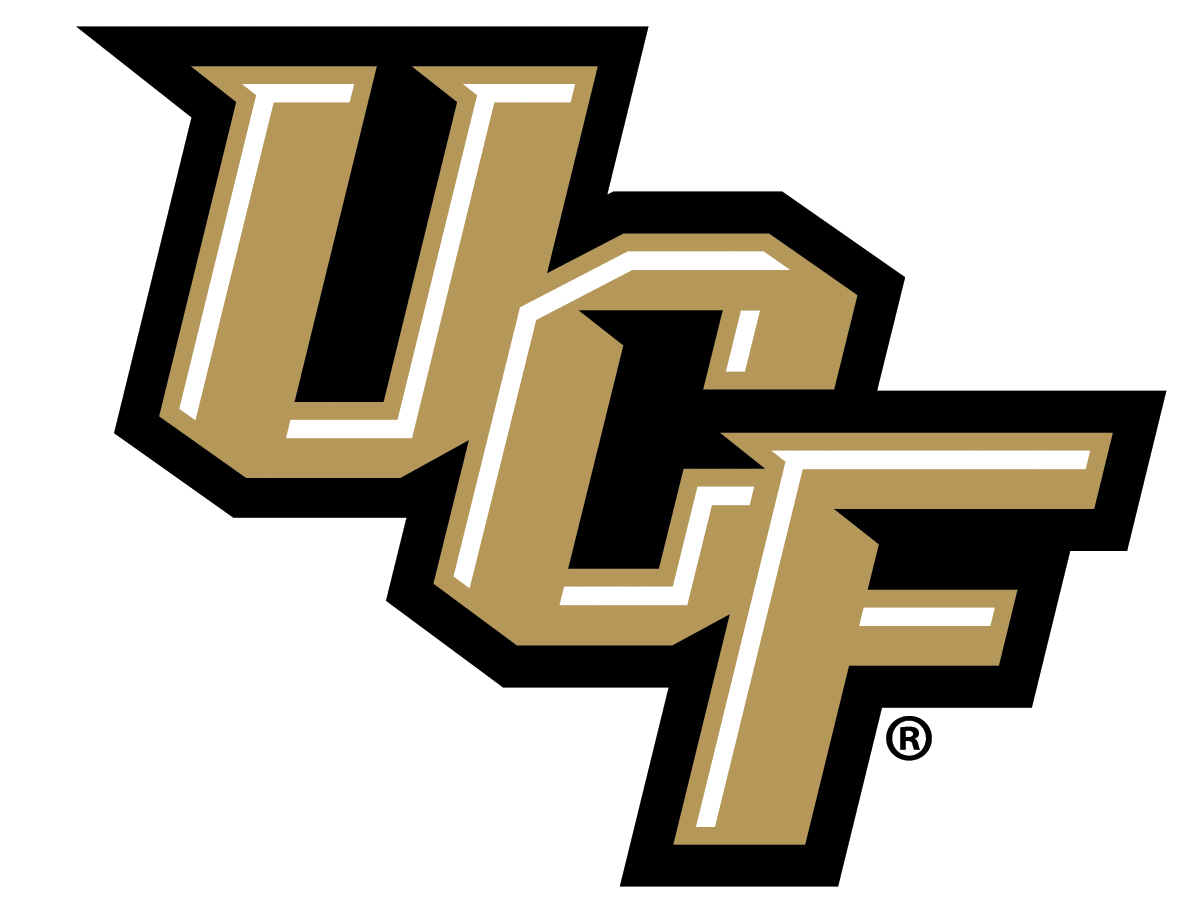 University of Central Florida
University of Central Florida
A five-time Southeast Division Champion (2009, 2010, 2013, 2015, 2017) and seven-time runner-up (2006, 2007, 2011, 2012, 2014, 2016, 2018), the Golden Knights of the University of Central Florida have proven to be a constant championship presence.
The runner-up at the 2013 Women’s National Collegiate Club Championship hosted by the University of Minnesota, UCF is a public research university located in unincorporated Orange County, Fla., near Union Park, UCF has more students enrolled on campus than any other U.S. university with 69,525 during the Fall 2019 semester.
Founded in 1963 by the Florida Legislature, UCF opened in 1968 as Florida Technological University, with the mission of providing personnel to support the growing U.S. space program at the Kennedy Space Center and Cape Canaveral Air Force Station on Florida’s Space Coast. As the school’s academic scope expanded beyond engineering and technology, Florida Tech was renamed The University of Central Florida in 1978. Enrollment today includes students from 157 countries, all 50 states and Washington, D.C.
Most of the student population is on the university’s main campus, 13 miles east of downtown Orlando and 35 miles west of Cape Canaveral. The university offers more than 200 degrees through 13 colleges at 10 regional campuses in Central Florida, the Health Sciences Campus at Lake Nona, the Rosen College of Hospitality Management in south Orlando and the Center for Emerging Media in downtown Orlando.
The school’s existence is tied to President John F. Kennedy’s September 1962 speech, in which he described his goal of accomplishing a manned space flight to the moon by the end of the decade. Due to this, the space program grew in importance and scope in Central Florida because of its proximity to Cape Canaveral. This push for education in and around Cape Canaveral brought about the creation of UCF to achieve the limitless possibility of space exploration. This goal is displayed in the university logo which features Pegasus – the flying horse — which “symbolizes the university’s vision of limitless possibilities.”
Central Florida has a unique campus layout that has become a model for other universities, reminiscent of the plans by Walt Disney for his Experimental Prototype Community of Tomorrow, or EPCOT. The campus was designed to be a pedestrian oriented campus, with a series of concentric circles. The outermost circle is Gemini Blvd, which is also the main road for vehicular traffic on campus. Inside of Gemini, there is Apollo Circle, Mercury Circle, and finally Pegasus Circle as the innermost circle. All academic buildings are located inside of Gemini, with the circle divided up into pie-shaped sections for each college. The University of Central Florida campus is one of only two in the nation with a concentric circle design, the other being the University of California-Irvine.
Located directly south of the main campus is Central Florida Research Park, which is the seventh largest research park in the nation and the largest in Florida, housing over 116 corporations. The park provides more than 10,000 jobs to over 500 students and thousands of alumni.
The university accepted approximately 36% of 32,634 applicants in 2018 with 11,720 acceptance letters being sent out. Over 96% of undergraduates receive financial aid, with an average financial aid package of $11,442 and about 70% of aid distributed in the forms of grants or scholarships. 90% of students receive scholarships through the Florida Bright Futures program. Forty percent of incoming freshman received Advanced Placement, International Baccalaureate, or an equivalent college credit upon entrance, while 30% of the freshman class received merit based scholarships.
For more information on the Central Florida women’s collegiate club team, contact either Tess Buccarelli (tessbuccarelli@knights.ucf.edu), Alex Konvalina (akonvalina@knights.ucf.edu) or coach Annaliese Bullock (Annaliesebullock@gmail.com).
- Facebook (@wwaterpoloatucf)
- Instagram (@wwaterpoloatucf)
- Twitter (@WWaterPoloAtUCF)
- Website (ucf.campuslabs.com/engage/organization/water-polo-club-women-s)
University of Florida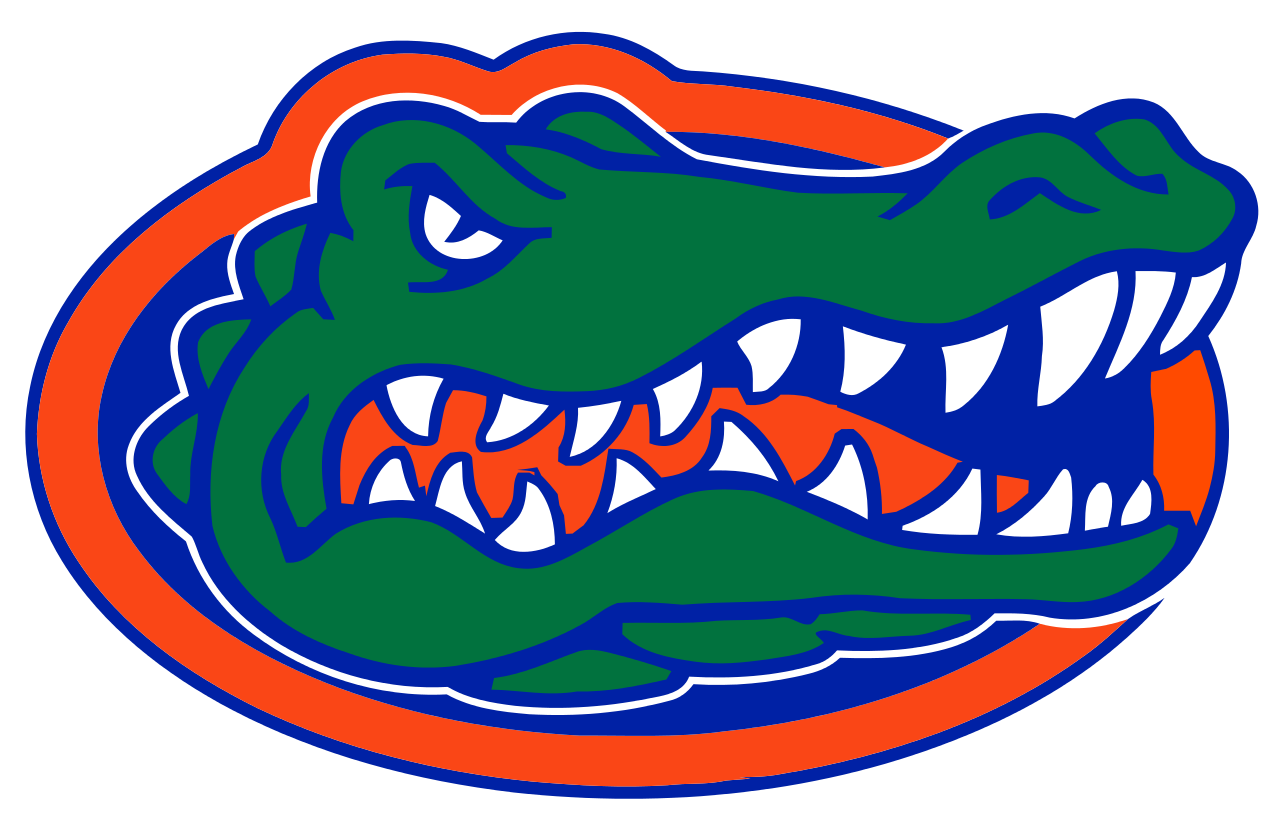
The defending Women’s National Collegiate Club Champion and the only women’s East Coast school to ever win the crown thanks to defeating the University of California-Davis by a 4-3 score at the University of Notre Dame in 2019, the Gators of the University of Florida have dominated the Southeast Division since 2001.
Flroida, which fielded both “A” and “B” teams during the abbreviated 2020 season, is a 14-time division champion (2001, 2002, 2003, 2004, 2005, 2006, 2007, 2008, 2011, 2012, 2014, 2016, 2018, 2019) and three-time runner-up (2009, 2010, 2013). Overall, the program has appeared in 17-of-19 contested Southeast Division Championship title games since 2001.
A 14-time participant at the Women’s National Collegiate Club Championship with three title game appearances (2001, 2006, 2019), Florida has never finished outside the Top 10 at the event by previously placing first (2019 vs. UC-Davis), second (2001 vs. Michigan State University, 2006 vs. Michigan State), third (2002, 2004, 2012, 2018), fourth (2003, 2016), fifth (2000, 2011), seventh (2008), eighth (2014) and ninth (2005, 2007).
Florida is part of an odd coincidence in the history of women’s collegiate club water polo as the hosts of the Men’s National Collegiate Club Championships in 2000-to-2002 do so after their women’s equivalents reached the title game against Michigan State during the Spring. In 2000, the University of Washington women defeated Michigan State at the University of Arizona in Tucson, Ariz., prior to the Huskies men’s team hosting the 2000 men’s event at the the King County Aquatic Center in Federal Way, Wash. A year later, Florida fell to Michigan State at Miami University in Oxford, Ohio, before the Gators’ men’s team hosted the 2001 event in Gainesville. Finally, California Polytechnic State University suffered a loss to the Spartans in 2002 at Emory University in Atlanta, Georgia, before the Cal Poly men hosted the championship at home in San Luis Obispo, Calif.
In addition, all three of Florida’s National Championship game appearances (2001, 2006, 2019) have come in the Midwest at Miami of Ohio (2001; Oxford, Ohio), Northwestern University (2006; Evanton, Ill.) and 2019 (Notre Dame; South Bend, Ind.). In the three other Women’s National Collegiate Club Championships hosted in the middle of the country? Florida finished fourth (2003 at Carthage College in Kenosha, Wisc.), fifth (2011 at Notre Dame) and eighth (2014 at SPIRE Institute in Geneva, Ohio).
A public university located in Gainesville, Florida, the school traces its origins to 1853 and has operated continuously on its Gainesville campus since September 1906. For 2020, U.S. News & World Report ranked Florida as the seventh (tied) best public university in the United States.
It is the third largest Florida university by student population, and is the eighth largest single-campus university in the United States. The University of Florida is home to 16 academic colleges and more than 150 research centers and institutes. It offers multiple graduate professional programs—including business administration, engineering, law, dentistry, medicine, pharmacy and veterinary medicine—on one contiguous campus, and administers 123 master’s degree programs and 76 doctoral degree programs in eighty-seven schools and departments. The university’s seal is also the seal of the state of Florida, which is on the state flag.
In Fall 2018, the University of Florida had 56,079 students in total, 37,527 (67%) being undergraduate students, 11,763 (21%) being graduate students, 3,990 (7%) being professional students, 2,642 (5%) being unclassified, and 157 (0.3%) being correspondence students. Out of all 56,079 students, 3,587 were enrolled through UF Online. The ratio of women to men was 56:44 and 28 percent were graduate or professional students. Professional degree programs include architecture, dentistry, law, medicine, pharmacy and veterinary medicine. Home to the largest Jewish student body in the United States, approximately 18% of UF undergraduate and graduate students identify as Jewish compared to around 2% of the United States population.
According to the Annual Admissions Report conducted by UF in 2019, roughly 17% of the incoming freshman class was entering from outside of Florida. New York and New Jersey are the biggest feeder states outside of Florida.
The school’s mascot of the alligator was chosen in 1911 after a local vendor ordered and sold school pennants imprinted with an alligator emblem. The school colors, orange and blue, are a reference to the region’s heritage and an homage to the Scottish and Ulster-Scots Presbyterian heritage of the original founders of Gainesville and Alachua County, most of whom were settlers from North Carolina. The settlers ancestors were primarily Presbyterians of Scottish descent who had come to America from County Down and County Antrim in what has become Northern Ireland, while some had come directly from the Scottish Lowlands.
For more information on the Florida women’s collegiate club team, contact either Angela Vazquez (angeladvazquez@ufl.edu) or Deanna Choma (dchoma@ufl.edu).
- Facebook (@UFwwaterpolo)
- Twitter (@ufwaterpolo)
- Website (ufwaterpolo.com)

